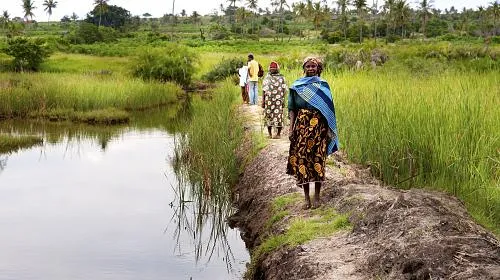(December 14, 2014) – The words of Peruvian Environment Minister Pulgar Vidal, who urged nations meeting at the climate talks in Lima to “give hope to the world”, but governments have largely failed to lay the foundations for an ambitious climate deal in 2015.
The lack of ambitious action by developed countries is a disgrace and sends the wrong signal to the millions of poor and vulnerable people around the world who are already bearing the brunt of climate change impacts, aid organization CARE International says.
Dr. Robert Glasser, CARE International Secretary General, says:
“The Lima talks offered a vital opportunity to lay the foundations for global climate action and provide a safer future for our planet and its people. All the elements were there for this to be a successful meeting, but governments failed to step up.
“Countries are stuck in silos and have shown little leadership, no give and take, nor any commitment to agree a global deal to tackle the greatest injustice of our time. Ahead of the UN climate summit in Paris in 2015, governments must work extra hard to overcome the opportunities missed in Lima and deal with the lack of trust between nations. They must redouble their efforts right away.”
Robert Glasser continues:
“A few hundred kilometres from these talks, communities in the Andes are already competing for water, struggling to feed their families and to maintain their incomes as crop yields decrease. So far, the world has only warmed by 0.8°C, but with this business as usual approach, we’re almost certainly on track for a 3°C temperature rise, with truly colossal impacts.”
After two weeks, many of the critical sticking points remain unresolved. Countries cannot agree how to deal with historic and evolving responsibilities for tackling climate change, and developed nations have resisted the inclusion of loss and damage in the 2015 agreement.
Outcomes include:
- An unwieldy draft text for the 2015 agreement, and, no shared vision or ambition, with many countries sticking rigidly to their positions.
- No new emissions reductions to help limit global warming to 1.5°C or to peak global emissions before 2020.
- No commitments from developed countries to provide a financial ‘road map’ for Paris in 2015 to deliver on their required commitment of USD100 bn per year by 2020.
There is still a glimmer of hope. Around the world, people are getting active as momentum from the recent climate marches, and dire warnings from science, hit home.
Robert Glasser concludes: “The weight of responsibility for action lies with every nation and their ability to rally parties around an ambitious global climate deal in Paris. It requires intense political leadership. Countries must now rise above narrow self interest and deliver an agreement for the greater, global good.”
For further information, please contact:
Jo Barrett, jbarrett@careclimatechange.org, Twitter: @jo_barrett_, Phone: +44 (0)7940 703911
Sven Harmeling, sharmeling@careclimatechange.org, Twitter: @harmeling, Phone: +49 (0)177 6136431

